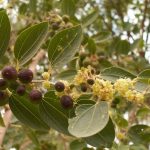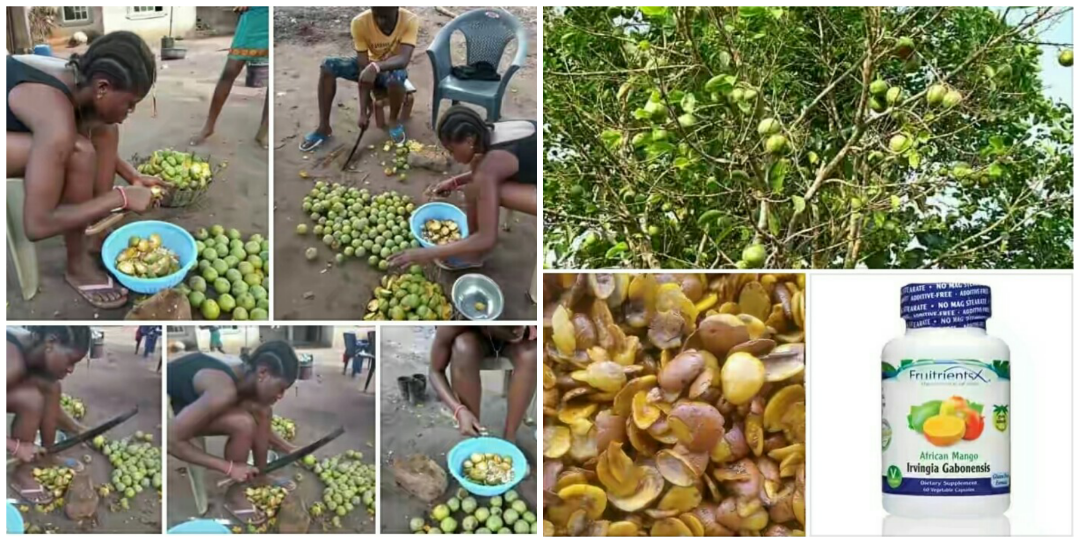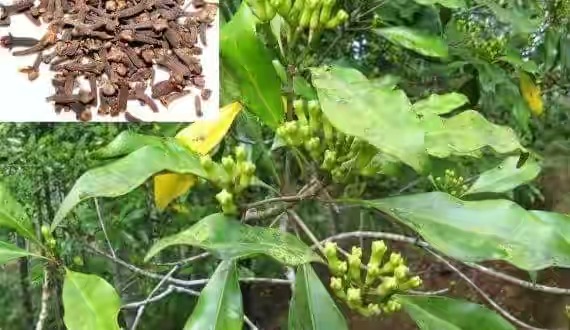Ziziphus spina-christi fruit or Christ’s Thorn or Jujube or Kurna (Hausa) or Kurnahi (Fulani) or Eakannase-adie (Yoruba): Another Nigerian underutilized and abandoned plant with health benefits
Ziziphus spina-christi fruit commonly known as Christ’s Thorn Jujube, is a deciduous tree and native to the warm-temperate and subtropical regions, including West Africa, North Africa, South Europe, Mediterranean, Australia, tropical America, South and East of Asia as well as the Middle East. Other common names of the plant are Buffalo thorn, Jujube and Syrian Christthorn.
According to Christian tradition, the crown of thorns the Romans placed on Jesus’ head before his crucifixion, as referred to in the New Testament, was formed from the branches of the tree, hence its scientific name. The Christ’s thorn jujube features in a traditional Muslim legend, in which the tree grows in Paradise, with leaves as many as there are human beings.
Description and occurrence
Each leaf bears the name of a person. Every year, one day in the middle of the month of Ramadan, just after sunset, the tree is shaken. The names on the leaves that fall are of those who will die in the coming year. Considered by Muslims a “sacred tree” and for the Druze, Christ Thorn jujubes bear the status of a “blessed tree”, it has been protected from being cut down near sites of cultural or religious significance. There is evidence that the jujube was used in Pharaonic times for its wood and fruits.
One of the uses of the fruit was in baking bread, a practice followed by Egyptian peasants as late as the beginning of the 20th century. And still, today, Bedouins collect and dry the fruits for use in the winter, making a thick paste to be used as bread. The Kurna fruit is a drupe, varying from round to elongate and from cherry-size to plum-size depending on cultivar. It taste like a mixture of apples and dates which can be eaten as fresh as well as in dried form. It has a thin, edible skin surrounding whitish flesh of sweet, agreeable flavor. The single hard stone contains two seeds.
The immature fruit is green in color, but as it ripens it goes through a yellow-green stage with mahogany-colored spots appearing on the skin as the fruit ripens further. The fully mature fruit is entirely red. Shortly after becoming fully red, the fruit begins to soften and wrinkle. The fruit can be eaten after it becomes wrinkled, but most people prefer them during the interval between the yellow-green stage and the full red stage. At this stage the flesh is crisp and sweet, reminiscent of an apple. Under dry conditions jujubes lose moisture, shrivel and become spongy inside. Experiments performed in Russia indicate very high vitamin C content.
Health benefits of Ziziphus spina-christi (Christ’s Thorn Jujube)
The fruit has been used medicinally for millennia by many cultures. One of its most popular uses is as a tea for sore throat. In Israel, Christ’s thorn jujube is used in traditional medicine for treating toothache (powder from roots), arthritis (paste from crushed roots, leaves or branches), muscle pains (inhalation of leaves and branches), asthma (fruit, leaves and seeds), diarrhea (infusion of fruit and leaves), burns (fruit crushed and boiled), and other ailments.
In the Middle East, Kurna was commonly used in treatment of various diseases such as digestive disorders, diabetes, liver complaints, anodyne, emollient, obesity, urinary troubles, skin infections, loss of appetite, fever, pharyngitis, bronchitis, anemia, diarrhea and insomnia and also known for medicinal properties such as hypoglycemic, hypotensive, hypolipidemic, anti-inflammatory, antimicrobial, antioxidant, anti-tumor and as an immune system stimulant. Hepatoprotective effect of Christ’s Thorn extract in animal model has recently been reported. This effect might be due to its antioxidant and free radical removing effects. Phytochemical studies suggest that Kurna contains cyclopeptide alkaloids, flavonoids, sterols, tannins and triterpenoid saponin glycosides.
In Iran, Jujube is cultivated mainly as a dry crop for its mucilage nutritious fruits, honey production and landscaping purposes. It serves the ecosystem by controlling erosion, acting as wind break and it improves soil quality by increasing available phosphorus. Traditionally, it is used in Iran as a medicinal plant; the fruits are used for the treatment of fever, pain, dandruff, wounds and ulcers, in inflammatory conditions, asthma and to cure eye diseases, while the seeds are used as a tonic.
Extracts from the plant could be useful in the treatment of nosocomial infections (hospital-acquired infection), opportunistic infection of the unary tract, infantile gastroenteritis, traveler’s diarrhea, wound infection, meningitis, and wounds infection.
Some useful Kurna recipes
Jujube Cake
1 cup sugar
1/2 cup butter
2 cups dried, minced jujube
1 cup water
Bring these to a boil then set aside to cool
2 cups wheat flour
1 teaspoonful soda
1/2 teaspoonful salt
Sift these together then add to the above mixture. Bake at 160° Celsius
Candied Jujubes
Wash about 3 pounds dried jujubes; drain and prick each several times with a fork. In a kettle bring to a boil 5 cups water, 5-1/2 cups sugar, and 1 tablespoon corn starch. Add the jujubes and simmer, uncovered, stirring occasionally, for 30 minutes. Cool, cover, and chill overnight.
The next day bring syrup and jujubes to a boil and simmer, uncovered, 30 minutes. With a slotted spoon lift jujubes from syrup and place slightly apart on rimmed pans. Dry in oven, or in sun for about 2 to 3 days. Check fruit frequently and turn fruit occasionally until the jujubes are like the dates ones sees in the market.
Jujube Syrup
Boil syrup remaining from the Candied Jujubes, uncovered, until reduced to about 2 cups. Use over pancakes and waffles. Store in the refrigerator.
Other uses: Substitute the dried jujube wherever recipes call for raisins or dates. Dried jujubes are a wonderful snack that can be prepared without the use of any preservative as is so commonly needed for other dried fruits.

Credit: Wikipedia
These are the thoughts of:
Sa’eed Halilu Bawa
Senior Lecturer (Associate Professor) at University of the West Indies, St. Augustine Campus, Trinidad.
Studied Food and Nutrition Sciences, Dietetics at Kaduna Polytechnic, Nigeria; Warsaw University of Life Sciences, Poland.























